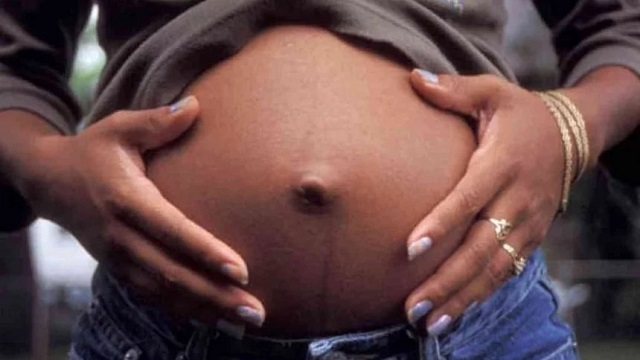
Houston, U.S. | Xinhua | A woman carrying a fetus without a skull but denied abortion protested at the State Capitol of southern U.S. state of Louisiana on Friday, calling for the change of the state law.
On the steps of the State Capitol in Baton Rouge, the capital city of Louisiana, Nancy Davis, franked by her extended family and lawyers, said at a press conference that Governor John Bel Edwards and the state’s lawmakers should convene a special session to change the state’s trigger laws on abortion as soon as possible so as to make it clarified.
The 36-year-old Baton Rouge woman said she was denied an abortion by the Woman’s Hospital, where she received the diagnosis of acrania for the then 10-week fetus, a fatal and rare condition in which there is no skull. She is now 15 weeks pregnant.
Doctors from the hospital seemed “confused about the law and afraid of what would happen to them” even after they told her she should terminate the pregnancy in early August, said Davis, nearing tears. She was told that if she brought the pregnancy to full term and gave birth, the baby would likely survive for a very short amount of time, possibly several minutes to a week.
“Basically, they said I had to carry my baby to bury my baby,” Davis said. “They seemed confused about the law and afraid of what would happen to them.”
“This has truly been an emotional rollercoaster,” she said.
Davis and her partner, Shedric Cole, said they see it as their duty to end the pregnancy rather than bring a baby into the world to watch it suffer and die within minutes to days. The couple already have three children between them, aged 1, 13 and 16 respectively, local media reported.
“Being a mother starts when your baby is in the womb,” said Davis. “As a mother, even though the baby isn’t here, it’s still my responsibility to have my baby’s best interest at heart.”
“Speaker of the House, Senate President, come back from your August vacations and make sure that these vague laws are actually clear so that other women are spared the mental anguish, the mental torment, that Ms. Nancy Davis is having to endure,” said her lawyer Ben Crump, a veteran civil rights and personal injury attorney.
“Ms. Davis was among the first women to be caught in the crosshairs of confusion due to Louisiana’s rush to restrict abortion, but she will hardly be the last,” Crump said. The state lawmakers’ next regular session is scheduled for April 2023.
In response, Michelle McCalope, the Louisiana Department of Health press secretary, told local media outlet NOLA in an email that the state law is “clear and unambiguous” and the department “has complied with its legal obligations.”
The state’s near-all abortion ban, only except to save the life or life-sustaining organs of the mother, went into effect immediately after U.S. Supreme Court’s decision in June which overturned the 1973 Roe v. Wade ruling that had established a constitutional right to abortion.
However, the state has a list of conditions a fetus can be diagnosed with that are exceptions to the law, including 24 conditions and one broader exception for a fetus that is incompatible with life, as determined by two physicians, the NOLA reported, which has resulted in a confusion surrounding the abortion ban and exceptions the state has outlined for “medically futile” pregnancies.
If a doctor performs an illegal abortion in Louisiana, they could face up to 15 years in prison, according to local media reports.
Davis said she plans to travel to North Carolina next week for a “medically necessary” abortion.
 The Independent Uganda: You get the Truth we Pay the Price
The Independent Uganda: You get the Truth we Pay the Price





